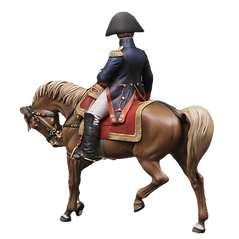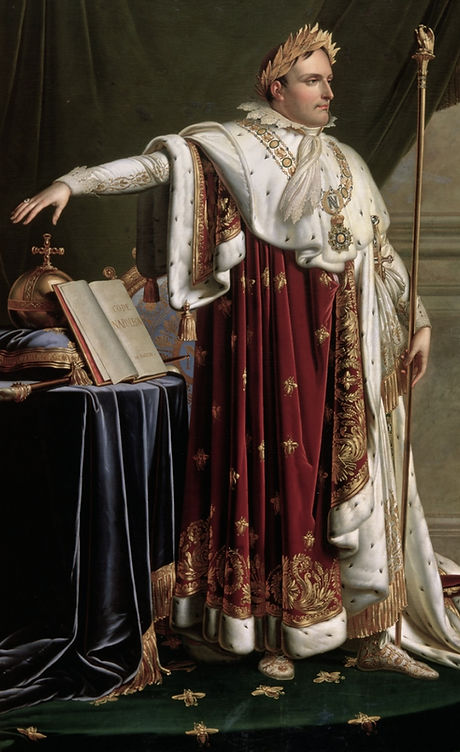Returning Compatriots
"I think continually of those who were truly great. Who, from the womb, remembered the soul's history."
— Stephen Spender, The Truly Great, 1933


Napoleon and Neapollyon
As one of history’s great military leaders, Napoleon Bonaparte (1769–1821), rose to become Emperor of the French and went on to conquer Europe. Following the French Revolution he inaugurated a new world order of constitutional law, the Code Napoléon, enacting the liberty and equality of all its citizens, including the freedom of religion. Napoleon was nevertheless an autocratic tyrant acting under a cloak of democracy.
This was not his first incarnation on French soil, however, as he had previously been King Philip IV of France, infamous for his suppression of the Knights Templar. Before all that, Philip had been Genghis Khan and, as another irony of history, the notorious Attila the Hun. Genghis and Attila are remembered for being short in stature, broad-chested, and having a large head. Moreover, what Attila overran, Napoleon would try to overrule.
Sensing a karmic kinship to other great conquerors, Napoleon exhorted others to “Read over and over again the campaigns of Alexander, Hannibal, Caesar, Gustavus, Turenne, Eugene and Frederic… This is the only way to become a great general and master the secrets of the art of war.” Napoleon himself claimed to have been Julius Caesar and Charlemagne. He was not far wrong, having been Cesare (Caesar) Borgia, son of Pope Alexander VI, commander of the papal armies and an eminent statesman; as well as the High Priest of Israel, Caiaphas, who betrayed Jesus to the Romans. Further back in time he was hailed as Neapollyon — the new Apollyon, the 'Destroyer' of Atlantis. (El Aurenx, Esoterica, 2001)
.jpg)
